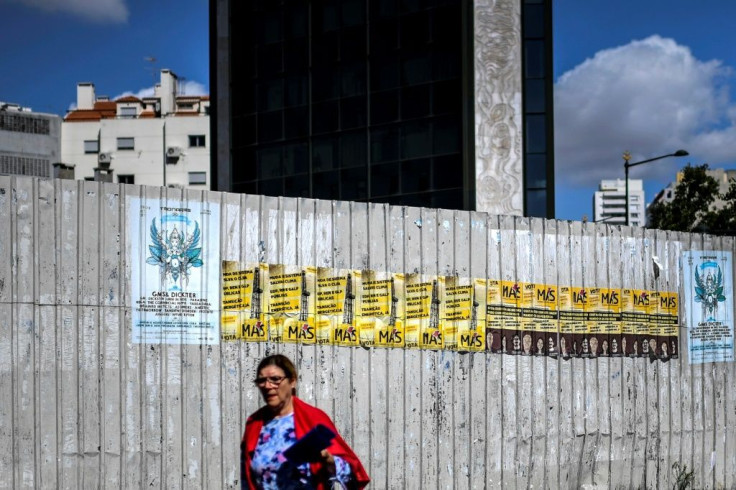Portugal Economic Crisis A Fading Memory Ahead Of Polls

After Liliana Inverno lost her job in 2012 at the height of Portugal's economic crisis, she reluctantly accepted a position in China.
"I left in tears... It was not a choice," said the 40-year-old linguistics professor, who recently moved back to Portugal to take up a job at the University of Coimbra in the centre of the country.
Her return is a sign of Portugal's economic rebound, which has left Socialist Prime Minister Antonio Costa well placed to be re-elected for a second straight term in a general election on Sunday.
Portugal was forced to take a three-year 78-billion-euro bailout from the European Union and the International Monetary Fund in 2011 after the country was battered by the eurozone debt crisis, sparking its deepest recession since the transition to democracy in the 1970s and a major wave of emigration.
In exchange for the international aid, Lisbon agreed to harsh austerity measures, such as "drastic cuts" to higher education which Inverno said led her to lose her job at a university in the southern province of Algarve.
Her husband, who worked in the entertainment industry, went months without being paid, she added.
Inverno desperately started to look for work abroad and was hired in 2012 at a training centre in Macau, a tiny Portuguese colony which Lisbon handed back to China in 1999.
But when she was offered the job at the University of Coimbra earlier this year, Inverno jumped at the opportunity even though it meant she will earn half of what she did in Macau.
"As soon as my nomination was confirmed, we packed our bags," said Inverno.
'Dream of any government'
Costa's Socialists came to power in 2015 with the backing of two smaller hard-left parties on a promise to "turn the page on austerity" in a country that saw the jobless rate hit a record high of over 17 percent in 2013.
Riding the tide of an economic recovery which began under the previous centre-right government and the effects of the reforms imposed by Portugal's bailout creditors, Costa raised public worker wages and pensions, which had suffered severe cuts.
Portugal posted economic growth of 3.5 percent in 2017, and of 2.4 percent in 2018, its highest levels since 2000 while the jobless rate was more than halved to 6.4 percent in July, the level it was before the start of the crisis.
"This exceptional context is the dream of any government," said Joao Duque, an economics professor at Lisbon's Technical University, adding the Portuguese economy has benefitted from a recovery across Europe and a "boom in tourism".
Daniel Traca, the dean of Lisbon's Nova School of Business and Economics, said the tourism boom led more foreign firms to discover the country's "great talent and infrastructure".
"So all of these companies discovered that it was interesting to live in Portugal, move their assets to Portugal, invest in Portugal. And that I think will go on," he added.
Balanced books
At the same time the government raised indirect taxes and froze public investment to clean up the country's finances, Duque said.
The government expects Portugal's budget deficit, which reached 11.4 percent of GDP in 2010, to shrink to just 0.2 percent this year, the lowest level since its return to democracy in 1974.
The University of Coimbra, which dates back to the 13th century, has hired in two years around 30 new teachers including Inverno.
Of the roughly 500,000 people who left Portugal during the crisis, two-thirds have returned, according to official estimates.
Costa repeatedly points out that more people moved to Portugal in 2017 than left for the first time since the crisis.
Despite the economic improvement, Inverno said "people still have a really hard time making ends meet". She complained especially about the high cost of finding a place to live.
In another sign of dissatisfaction, public workers have over the past year staged a series of strikes to demand higher pay.
© Copyright AFP 2024. All rights reserved.





















